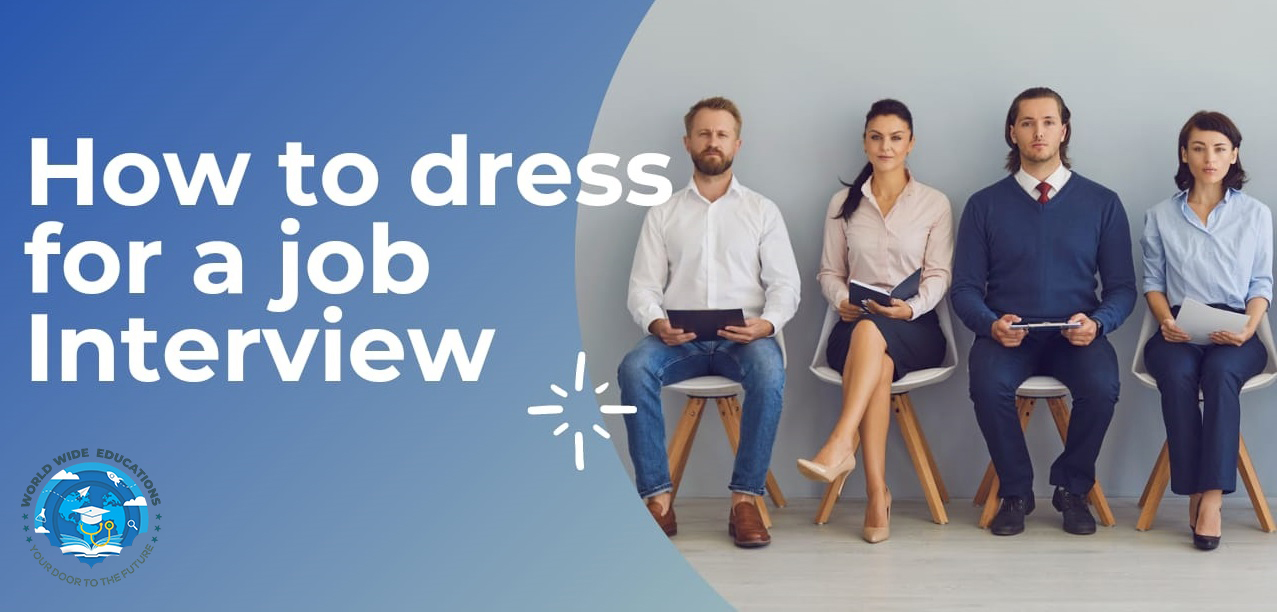Introduction
First impressions are crucial, especially during interviews. How you present yourself can significantly influence the perception of your potential employer or admissions officer. Dressing appropriately and maintaining a positive demeanor are essential components of creating a favorable impression. This guide will delve into why these factors matter, how to dress for different types of interviews, and tips for maintaining a positive demeanor throughout the interview process.
The Importance of Dressing Appropriately
- First Impressions: Your appearance is the first thing an interviewer notices. Dressing appropriately shows that you respect the interview process and the institution or company you are applying to.
- Professionalism: Proper attire demonstrates your understanding of professional norms and expectations.
- Confidence: Dressing well can boost your self-confidence, which positively affects your performance.
- Attention to Detail: Your choice of clothing can reflect your attention to detail and thoroughness, qualities that are valued in any role.
How to Dress for Different Types of Interviews
1. Business Formal
When to Wear: Business formal attire is typically expected in corporate settings, finance, law, and other professional fields.
For Men:
- Suit: A well-fitted, dark-colored suit (navy, black, or dark gray).
- Shirt: A white or light-colored dress shirt.
- Tie: A conservative tie that complements your suit.
- Shoes: Polished black or brown dress shoes.
- Accessories: Minimal jewelry and a professional watch.
For Women:
- Suit: A tailored pantsuit or skirt suit in a dark color.
- Blouse: A conservative blouse or dress shirt.
- Shoes: Closed-toe heels or flats in a neutral color.
- Accessories: Simple jewelry and a professional bag.
2. Business Casual
When to Wear: Business casual attire is common in tech companies, startups, and creative industries.
For Men:
- Shirt: A button-down shirt or polo shirt.
- Pants: Chinos or dress pants.
- Shoes: Loafers or dress shoes.
- Accessories: A belt that matches your shoes and minimal jewelry.
For Women:
- Top: A blouse, sweater, or tailored top.
- Bottoms: Dress pants, a skirt, or a casual dress.
- Shoes: Flats, low heels, or dressy boots.
- Accessories: Simple jewelry and a professional bag.
3. Casual
When to Wear: Casual attire may be appropriate for interviews at very relaxed companies, some creative fields, or informal campus visits.
For Men:
- Shirt: A neat polo shirt, button-down shirt, or sweater.
- Pants: Khakis, chinos, or dark jeans.
- Shoes: Clean casual shoes, loafers, or dressy sneakers.
- Accessories: Minimal and appropriate for the setting.
For Women:
- Top: A neat blouse, sweater, or casual dress.
- Bottoms: Casual skirts, khakis, or dark jeans.
- Shoes: Flats, loafers, or dressy sneakers.
- Accessories: Simple and appropriate for the setting.
Tips for Maintaining a Positive Demeanor
1. Practice Good Posture
Good posture conveys confidence and attentiveness. Sit up straight, keep your shoulders back, and avoid slouching. This posture not only makes you appear more professional but also helps you stay focused and engaged during the interview.
2. Smile
A genuine smile can make a significant difference in how you are perceived. Smiling shows that you are friendly, approachable, and positive. It can help put both you and the interviewer at ease, creating a more pleasant and productive conversation.
3. Make Eye Contact
Making eye contact demonstrates confidence and respect. It shows that you are engaged in the conversation and interested in what the interviewer has to say. However, be sure to strike a balance and avoid staring, which can be uncomfortable.
4. Be Polite and Courteous
Manners matter. Use polite language, say "please" and "thank you," and avoid interrupting the interviewer. Courtesy goes a long way in creating a positive impression and demonstrating your professionalism.
5. Stay Calm and Composed
Interviews can be stressful, but it’s important to stay calm and composed. Take deep breaths if you feel nervous, and don’t rush your answers. It’s okay to take a moment to think before responding to a question.
6. Show Enthusiasm
Enthusiasm is contagious and can make a strong impression. Show your excitement about the opportunity by speaking with energy and passion. This positive energy can demonstrate your genuine interest in the position or program.
7. Be Honest and Authentic
Authenticity is key to building trust with your interviewer. Be honest about your experiences, skills, and goals. If you don’t know the answer to a question, it’s better to admit it than to make something up.
8. Listen Actively
Active listening involves fully concentrating on what the interviewer is saying, understanding their message, and responding thoughtfully. Nod occasionally to show you are listening, and ask follow-up questions to demonstrate your engagement.
Preparing for the Interview
1. Research the Institution or Company
Understanding the institution or company’s culture, values, and expectations can help you dress appropriately and tailor your demeanor. Research their dress code, if available, and observe how employees present themselves.
2. Plan Your Outfit in Advance
Choose your interview outfit well in advance to avoid last-minute stress. Ensure your clothes are clean, pressed, and fit well. Try on your outfit to make sure it’s comfortable and looks professional.
3. Practice Your Responses
Practice common interview questions with a friend, family member, or in front of a mirror. Focus on maintaining a positive demeanor, good posture, and appropriate eye contact during your practice sessions.
4. Prepare Your Materials
Bring multiple copies of your resume, a list of references, and any other required documents. Having your materials organized and ready shows that you are prepared and professional.
5. Plan Your Route
If the interview is in person, plan your route and allow extra time for potential delays. Arriving early shows punctuality and gives you time to compose yourself before the interview.
Conclusion
Dressing appropriately and maintaining a positive demeanor are fundamental aspects of interview success. Your appearance and attitude can significantly influence how you are perceived by the interviewer, impacting their decision. By following the guidelines and tips provided in this blog, you can ensure that you present yourself in the best possible light, leaving a lasting and positive impression. Remember, confidence, professionalism, and enthusiasm are key to acing any interview.


